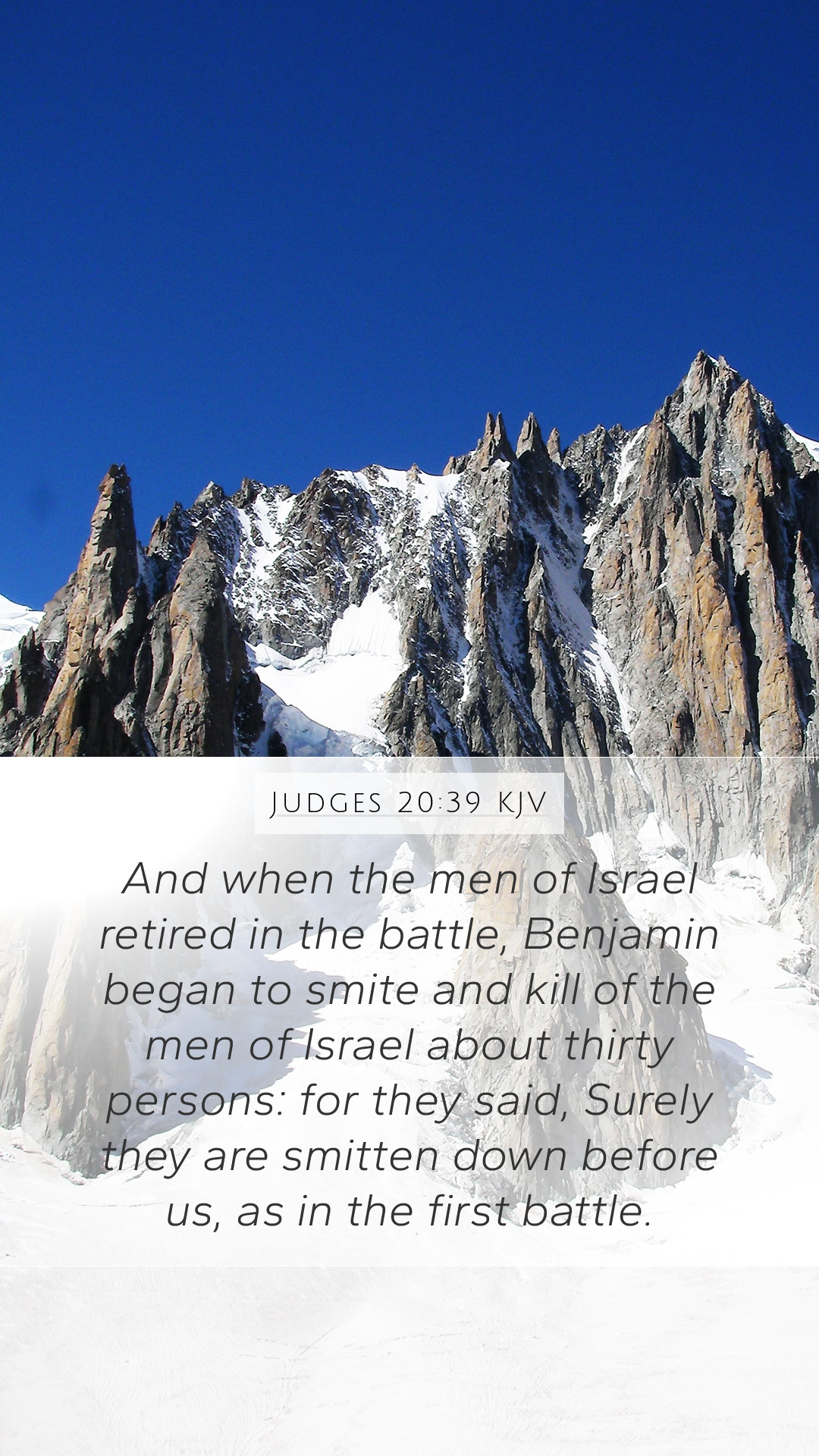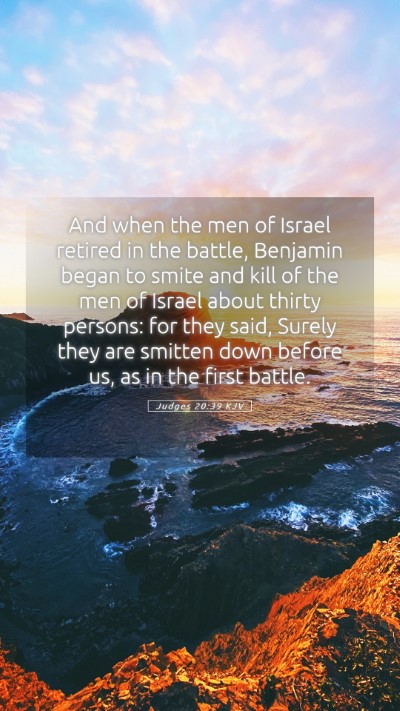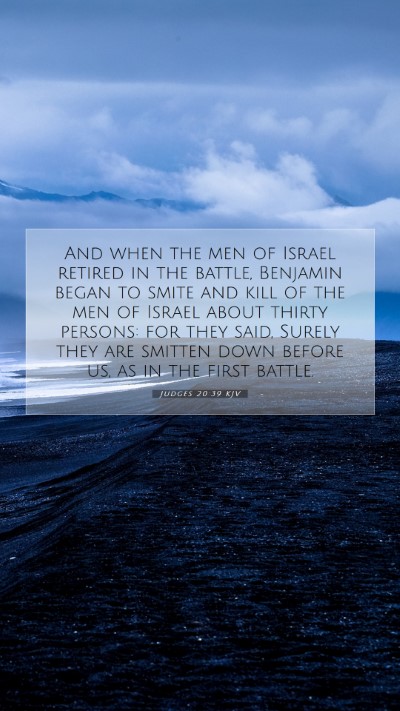Understanding Judges 20:39
Bible Verse: Judges 20:39
“And when the men of Israel retired in the battle, Benjamin began to smite and kill of the men of Israel about thirty persons: for they said, Surely they are smitten down before us, as in the first battle.”
Bible Verse Meaning
Judges 20:39 portrays a critical moment during the conflict between the tribe of Benjamin and the rest of Israel. The verse indicates a strategy in battle where the men of Israel feigned retreat to draw out the Benjaminite warriors, who had previously been emboldened by their successes.
Contextual Overview
This passage occurs within the broader narrative of the civil war instigated against Benjamin due to their egregious sin. The Israelite tribes come together to seek justice and restore righteousness, leading to a protracted conflict, as narrated in the Book of Judges. The strategy of retreating in this verse is a tactical maneuver, highlighting the complexity of war and the strategies employed therein.
Bible Verse Explanations
- Military Strategy: This verse presents a strategic ploy used in warfare, emphasizing the importance of deception and planning in battle. The act of retreat draws out the enemy and creates an opportunity for ambush.
- Human Flaws: The verse also reflects on human nature, showcasing the arrogance of the Benjaminites who believed themselves victorious, thus leading to their downfall when they were lured into a trap.
- Divine Justice: The underlying theme within this conflict is that of divine justice—pursuing correction for sin and maintaining communal righteousness, as seen in the broader narrative of Judges.
Bible Verse Interpretations
Explorations of Judges 20:39 can be informed by scholarly interpretations from notable public domain commentaries:
- Matthew Henry: Henry emphasizes the notion that the defeat of the tribe of Benjamin was divinely sanctioned, serving as a judgment against their immorality. The verse illustrates the tension between strategic military decisions and God's sovereignty in guiding the outcomes of events.
- Albert Barnes: Barnes notes that the initial victories of the Benjaminites had inflated their confidence, leading them to assume they were invincible. This underlines the theme of hubris leading to eventual defeat, particularly in light of divine retribution for sins against Israel.
- Adam Clarke: Clarke provides insights into the tactical aspects of battle described here and how this reflects the larger narrative of Israel's disobedience and the troublesome cycle of Israel's moral and civil decline throughout Judges.
Application of Judges 20:39 in Daily Life
The lessons derived from Judges 20:39 have relevance in various aspects of daily life, particularly in understanding the dynamics of conflict, the consequences of pride, and the necessity of strategic thinking:
- Conflict Resolution: Engaging in strategic and thoughtful approaches to conflict can often yield better outcomes than brute force and assumptions of superiority.
- Humility: This passage serves as a warning against pride, reminding us that reliance on our own strength can lead to unforeseen failures.
- Divine Guidance: Acknowledging that there’s a greater moral order at play encourages believers to seek divine guidance in their decisions, particularly when tackling ethical dilemmas.
Historical Context
The sociopolitical landscape during the time of the judges was fraught with instability and moral ambiguity. Israel had no centralized government, and each tribe acted independently. The events leading up to Judges 20 demonstrate the gravity of sin within the community, as well as the consequences that ensue when justice is overlooked.
Cross References
Judges 20:39 can be cross-referenced with other pertinent Scriptures to provide further insights:
- Judges 19: Details the events that led to the conflict against the tribe of Benjamin.
- Judges 20:14: Highlights the initial resolve of the Benjaminites to defend their tribe against Israel's requests for justice.
- 1 Samuel 15:23: Discusses the consequences of rebellion and pride, echoing themes found in Judges.
Final Thoughts
Judges 20:39 offers a vivid account of human conflict driven by underlying spiritual truths. The narratives found within the Book of Judges are rich with lessons about divine justice, human nature, and the importance of seeking justice in community life. By applying the insights derived from this verse, individuals can gain a deeper understanding of Scripture and its implications for modern living.


